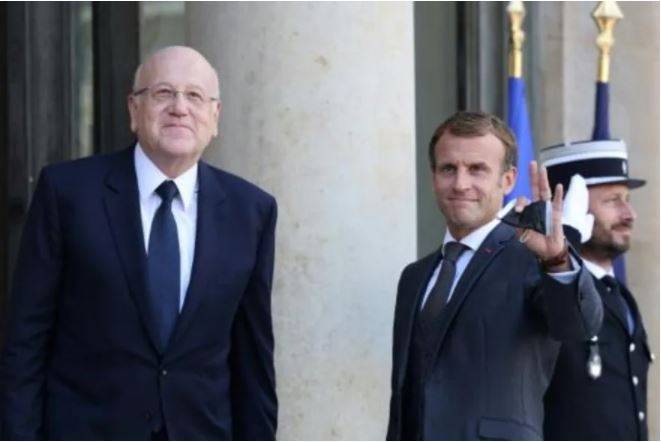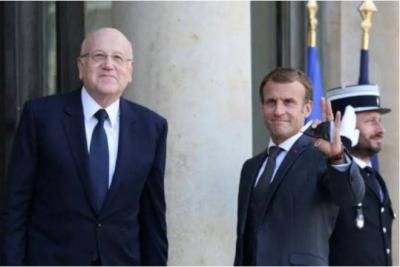Lebanese Prime Minister Najib Mikati confirmed to French President Emmanuel Macron on Friday his determination to implement the "urgent" reforms the latter called for to pull the country out of its crisis. Mikati stated in a joint press conference following a working lunch at the Élysée, "I assured President Macron of my commitment to implement the necessary and fundamental reforms... as quickly as possible... to restore trust, instill a new breath of hope, and alleviate the suffering of the Lebanese people." This was their first meeting since the businessman was appointed as Prime Minister after 13 months of marathon political negotiations and a vacuum that exacerbated the crisis in Lebanon. Emmanuel Macron expressed "all his wishes for success," reaffirming his desire to "work hand in hand with the living Lebanese forces and with those who... work daily with courage and dedication to overcome the shortcomings." He added, "I know and understand the frustration of our Lebanese friends and I hear their questions," urging them to seize "the opportunity to achieve tangible progress on the path of reforms," particularly in the areas of energy, governance, and the fight against corruption. Macron emphasized, "I will not abandon Lebanon, and France will not abandon Lebanon." The French president had become heavily involved in efforts to resolve the Lebanese crisis following the deadly explosion at the Beirut port on August 4, 2020. However, his initiatives, which have faced criticism at times, stalled due to the political class's failure to agree on forming a new government amidst worsening economic conditions. He lamented, "The negotiations (regarding the new government) have been very long," reminding that he has repeatedly condemned "the irresponsible behavior of the architects of this obstruction." As a result of the devaluation of the lira and widespread layoffs, about 78% of Lebanese people now live below the poverty line, according to the United Nations. The crisis is notably marked by severe shortages of medicine, fuel, and electricity, with the World Bank describing it as one of the worst crises in the world since 1850. For his part, Mikati stated that the steps he intends to take "will be essential to revive the economy" and to "continue the promising negotiations with the International Monetary Fund" to secure vital international financial assistance. Negotiations with the Fund began in May 2020 but stalled after two months due to divisions in Lebanon.
**Elections in Spring**
President Macron emphasized the need for "greater transparency in governance so that international aid goes directly to the Lebanese people." Mikati, who is 65 and considered one of the country's wealthiest individuals, expressed his "determination" to organize legislative elections in the spring of 2022, "which will allow renewal of the political life that the Lebanese people aspire to." These elections are deemed crucial as many Lebanese demand a renewal of the political elite that has remained virtually unchanged since the civil war (1975-1990). Emmanuel Macron warned, "We will remain vigilant and ready to act" for this electoral date. The French president concluded by stating, "Let’s be clear, the road will be difficult," but it is "not impossible," without indicating the possibility of visiting Lebanon again before the scheduled French presidential elections in April.




